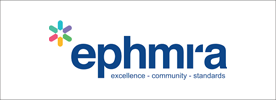
Understanding patient needs and preferences is paramount to delivering effective and patient-centric care. As the industry continues to embrace innovation, one key element that has gained prominence is the integration of behavioural science into healthcare market research. This approach goes beyond traditional methods, offering valuable insights into the intricacies of patient behaviour and decision-making.
Understanding the Foundations of Behavioural Science
Behavioural science involves the study of human behaviour and the factors that influence decision-making. It draws from disciplines such as psychology, sociology, and economics to analyse why individuals make specific choices and how their actions can be predicted and influenced. In the context of healthcare market research, applying behavioural science principles enables a deeper understanding of patient motivations, perceptions, and barriers to optimal healthcare engagement.
By leveraging the expansive knowledge derived from the amalgamation of diverse fields, this approach helps researchers to discern patterns, anticipate trends, and strategically address the underlying drivers shaping healthcare-related decisions. As such, the integration of behavioural science principles into healthcare market research becomes instrumental in not only unravelling the intricacies of patient behaviour but also in formulating informed strategies to enhance overall healthcare outcomes.
The Importance of Patient-Centricity
Patient-centric care is more than a mere buzzword; it represents a fundamental shift in the healthcare industry’s paradigm. By prioritising patients' unique needs, preferences, and experiences, healthcare providers can create tailored solutions that enhance overall satisfaction and improve health outcomes. Behavioural science plays a crucial role in identifying and addressing the factors that influence patients' interactions with the healthcare system.
Key Applications of Behavioural Science in Healthcare Market Research:
- Decision-Making Processes
- Healthcare Accessibility and Utilisation
- Patient Communication and Engagement
- Adherence to Treatment Plans
Behavioural science helps uncover the cognitive processes behind patient decision-making. By understanding how patients weigh risks, benefits, and uncertainties, healthcare professionals can design interventions and communication strategies that align with patients' thought processes.
Behavioural science sheds light on the barriers preventing individuals from accessing healthcare services. Whether it's financial constraints, cultural beliefs, or logistical challenges, identifying and addressing these barriers is essential for creating inclusive and accessible healthcare solutions.
Effective communication is at the heart of patient-centric care. Behavioural science guides the development of communication strategies that resonate with diverse patient populations, ensuring that information is not only delivered but also understood and acted upon.
Non-adherence to prescribed treatment plans is a common challenge in healthcare. Behavioural science explores the psychological factors influencing patient compliance, allowing for the development of interventions that promote better adherence and long-term health benefits.
In a healthcare landscape where prioritising patients is the benchmark for quality, leveraging insights from behavioural science becomes indispensable. By understanding the intricate web of human behaviour, healthcare professionals can design interventions, communication strategies, and services that resonate with patients, ultimately leading to a more engaged, satisfied, and healthier population. The integration of behavioural science into healthcare market research is not just a trend; it's a transformative approach that has the power to reshape the future of healthcare delivery.
Are you interested in learning more?





